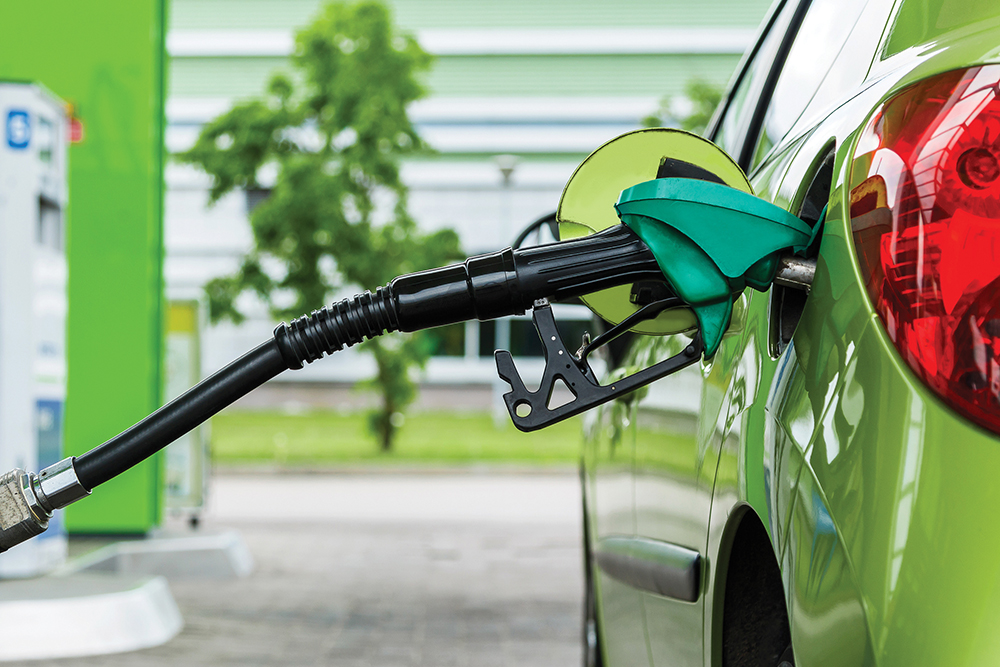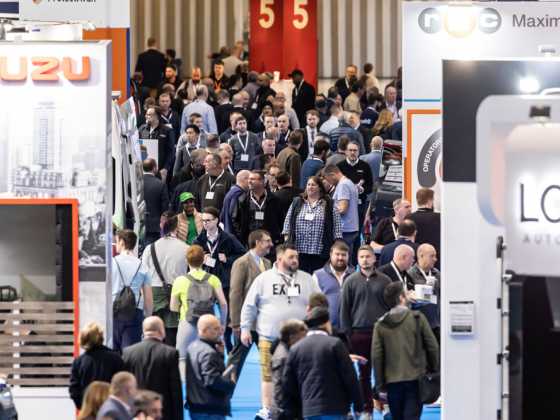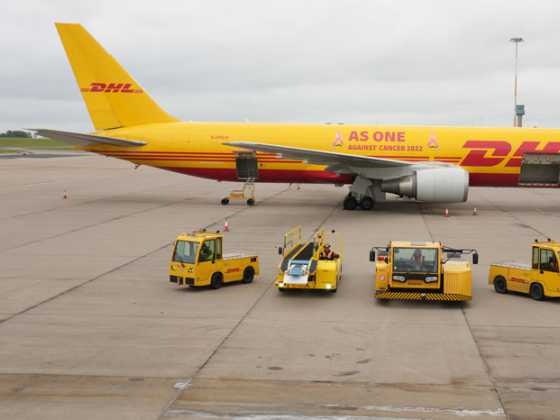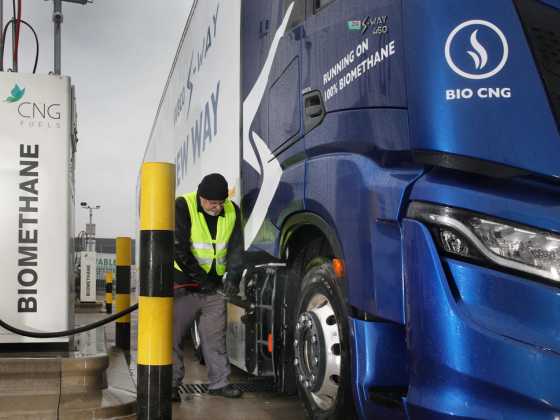Industry insight: fuel cards

How do fuel cards help fleet managers with their role, and what should they consider when choosing one? GreenFleet gathers together industry experts to get their views.
Fuel is an expensive part of running a fleet, therefore having visibility and better control over drivers’ fuel spend, as well as access to lower fuel prices, makes a sound business case for fleet managers. Fuel cards allow organisations to do this.
Rather than the traditional way of reimbursing staff with petty cash, a fuel card allows drivers to charge the cost of fuel to an account settled by their employer. During the transaction, the vehicle registration number and mileage are recorded. The invoice details where, when and what time fuel was purchased, as well as what type of fuel and how much it cost. This information allows fleet managers to cut down on administrative tasks as they no longer have to collect receipts and expense forms from employees, or worry that staff are rounding up mileage and being overpaid. It also allows them to accurately separate the costs of business and private mileage.
“Fuel cards have become a vital tool within a fleet operation, as companies are looking for increasingly convenient ways of filling up,” explains Andrew Goodwin from Certas Energy.
“Using a fuel card as a payment method means that fleet managers can keep track of transactions, even registering the driver’s name, vehicle registration and updated mileage information. Fuel cards can also help with reporting, as fuel consumption data can easily be sent to customers, either weekly or monthly, to monitor usage within fleets.”
Bryan Glazier from WEX Europe Services, says: “Having a fuel card means that a fleet manager can look forward to less hassle, lower their business costs and gain detailed performance data when running their fleets. Fleet managers can spend their efforts on their fleet performance rather than on administration and paperwork. The improvements in fuel cards that I have seen over the past 20 years, coupled with the adoption of new technology, have provided fleet managers with increased flexibility, purchasing options to assist corporate mobility, and controls.”
The idea of having control over fuel spend doesn’t just come from being able to see what your staff are up to. Many fuel cards allow organisations to set limits on usage, for example, to get drivers to fill up at supermarkets with lower-cost fuel, rather than motorway service stations. Cédric Vigneau from AS24 says: “Using fuel cards can help a fleet manager control who fills when, where, how many times, and with what. The fleet manager can decide in advance all the settings and tailor make the cards to the business. If any problems occur, the card can be stopped and reactivated later.”
He continues: “A fleet manager can detect the non-expected fillings, at days and hours where it is not required. It also allows them to control prices. For example, there is no sense to fill-up in the UK before crossing to France or Belgium, as the UK is much more expensive.”
Andrew Goodwin from Certas Energy agrees: “Being able to control costs and see where every litre of fuel is accounted for is one of the main reasons we see companies implementing a fuel card scheme. Fleet managers can set clear parameters on the number of times a card can be used in a day or week – and stop it being using on certain days, such as the weekend, or at certain sites.”
As well as visibility and control over drivers fuelling, fleet operations can benefit from access to cheaper fuel, as some fuel card providers offer lower-cost fixed prices. While others offer pump prices, as they cover a wide network of filling stations, the driver has the flexibility to choose the cheapest forecourt.
Cédric Vigneau from AS24 says: “Many fuel card companies fix their prices, so it’s guaranteed for the following week. This makes it easy to forecast the bill at the end of the week.”
A fleet snapshot
Detailed invoices, and indeed other management reports that are offered by fuel card companies, give much sought after data on how a fleet as a whole is performing regarding its fuel economy. The information can identify which individuals are using more fuel than others, perhaps by driving inefficiently, taking longer or congested routes, or driving an old, polluting vehicle.
Those individuals could then be trained and incentivised to drive in a more fuel efficient style or routes can be better planned. What’s more, fuel card reports will help fleet managers to see if the training is working by monitoring whether fuel usage goes down.
Choosing a fuel card
With numerous fuel cards on the market, how would a company know which one to choose? Gertjan Breij, director of DKV Euro Service Benelux, believes it depends on the company’s needs and shares some questions that should be asked: “Fleet managers have to weigh-up and consider what the biggest benefits are for their company. What are the applicable fees? What are the security options integrated in the card? In what way will the card affect their cash flow? What are the additional services included? In which countries will the fuel card be used? What products and services would you wish to use the card for? To what extent do you wish your records department to benefit from using fuel cards?”
A major consideration when choosing a fuel card is the network size, as Bryan Glazier from WEX Europe Services explains: “A sizable Network is often a key consideration, but don’t discount single networks or branded oil company cards. Most of these operate national networks in good locations and with cross acceptance agreements. Some of the largest national fleets in the UK successfully utilise oil company cards on a single brand basis.”
Andrew Goodwin from Certas Energy also states network coverage as an important factor: “Fleet managers should choose a fuel card that offers enough coverage throughout the UK. This gives drivers the flexibility for refuelling regularly so they don’t have to go off-route when on the road. Some fuel card companies can help by offering fleet mapping exercises to identify the suitability of each option, by looking at where fleet vehicles currently refuel and matching it to refuelling sites.”
Gertjan Breij from DKV believes that a chosen fuel card company should be seen as a ‘partner’. “It’s Important for a fleet manager to not only choose a fuel card that fits the company but also to find a fuel card supplier as a partner in business.
“For the fleet manager this means that he/she encounters less administrative hassle and support by a dedicated contact person on a day‑to-day basis. This allows the fleet manager to focus on their job without any distractions.”
Andrew Goodwin from Certas Energy adds: “It’s not just about choosing the right fuel card – it’s just as important to pick a provider that also has good customer service. When issues arise such as lost cards, having a dedicated account manager that can cancel a card immediately – even out of hours – can really make the difference.”
Value-added services
Many fuel card providers offer added services and it is important to look at the whole offer. Cédric Vigneau from AS24 says: “Services around a fuel card are important, such as being able to pay tolls and tunnels, to pay secured parking, to claim back VAT or duties, and breakdown assistance.”
Bryan Glazier from WEX Europe Services adds: “For day to day management choose a fuel card with an online portal so that you can see detailed information on vehicle expenses, statistics and performance; order and block cards online; manage invoices; and view transactions, including fuel, automated car washes and tolls, 24/7.”
Environmental credentials
Driving releases harmful CO2 emissions in the air, but it is a necessary evil for companies that rely on fleets.
Many fuel companies acknowledge this and have taken steps to be greener. Gertjan Breij from DKV writes: “More and more frequently, business partners are demanding proof of how a company handles its CO2 emissions. DKV customers can offset their CO2 emissions by 100 per cent. This positive eco-balance provides a distinct competitive advantage and strengthens the brand of a company.”
Certas Energy agrees: “Importantly, more and more fleet organisations have stringent policies on energy efficiency now, which is why we would advise fleet managers to look at fuel card providers that are actively trying to cut down on carbon emissions. Certas Energy, for example, is aiming to be the first fuel distributor with the ISO 50001 accreditation for energy efficiency, having taken a number of measures internally, and incorporated them into its fuel card offering.”
The future
With connected cars and new technology advancing the sector, as well as hybrid, electric and hydrogen vehicles entering the market, transport as we know it is changing. So how does the future look for the fuel card industry?
Gertjan Breij from DKV says: “Chip cards, smartphones, and connected/smart vehicles currently represent the main future trends. We strongly believe that those will become a reality by 2025 and beyond. The fuel and service card currently offers the biggest infrastructure.
“Therefore, it will not be replaced overnight. However, since we want our customers to have the choice, it is our medium-term goal to act independently from a payment medium.”
“In Germany we have already established the infrastructure of charging stations for our new hybrid fuel card. Our task for the future will be to offer a wide range of solutions that allow our customers to select their preferred option. Solutions that perfectly fit our customer’s processes,” Gertjan adds.
Andrew Goodwin from Certas Energy believes that fuel cards will no longer be a standalone product: “We see fuel cards becoming more integrated with other products, to encourage a more streamlined process. Currently, many businesses see fuel cards as a stand-alone product rather than a package, using one supplier for fuel cards, one for fuel and another for lubricants, for example.
“However, this can make it difficult to negotiate an overall fuel card package, as well as creating additional problems internally for procurement.
“Fuel cards are also evolving to become more customer-focused, with the introduction of loyalty schemes, as well as licence checks, operator licence management, risk assessments and maintenance records. More and more fleet managers are looking for these types of value-added products, in addition to a standard fuel card – and we see this trend continuing in the future.”
Bryan Glazier from WEX says: “We expect that fuel cards will become more than just a way to pay for fuel. Developments are expected that will support corporate mobility requirements yet retain the control, security and administration benefits that fuel cards historically bring to the industry. Further advancements in payment solution technology such as mobile payment applications, adoption of new technologies and product integration (i.e. telematics, OBUs, black box solutions) are likely feature within the market.”
Cédric Vigneau from AS24 adds that he sees the card no longer being necessary: “The main change for me is the card’s disappearance, replacing it with an alternative device such as a phone or a tag in the truck.”
Expert final thoughts
Andrew Goodwin
“We see fuel cards becoming more integrated with other products, to encourage a more streamlined process. Currently, many businesses see fuel cards as a stand-alone product rather than a package. However, this can make it difficult to negotiate an overall fuel card package, as well as creating additional problems internally for procurement. Some fuel card providers, such as Certas Energy, are looking at integrating a fuel card package with on-site refuelling telemetry systems, to enable both on-site refuelling and on-the-road refuelling. Using the fuel card in this way offers benefits to fleet management, making internal reporting and auditing easier and less time consuming.”
www.certasenergy.co.uk
Gertjan Breij
”Chip cards, smartphones, and connected/smart vehicles currently represent the main future trends. Apart from these technical trends, we notice a strong demand for sustainable products. We are convinced that sustainable products have already become a competitive issue and we see this trend getting stronger. In Germany, for instance, we already established the infrastructure of charging stations for our new hybrid fuel card. Our task for the future will be to offer a wide range of solutions that allow our customers to select their preferred option.”
www.dkv-euroservice.com/gb
Bryan Glazier
“We expect that fuel cards will become more than just a way to pay for fuel. Developments are expected that will support corporate mobility requirements yet retain the control, security and administration benefits that fuel cards historically bring to the industry. Further advancements in payment solution technology such as mobile payment applications, adoption of new technologies and product integration (i.e. telematics, OBUs, black box solutions) are likely feature within the market.”
www.wexeuropeservices.com
Cédric Vigneau
“The fuel card industry in the uk is a very competitive market, one the most in Europe. In the future, I see the card disappearing and being replaced by an alternative device to make payments such as a phone or a tag in the truck. Services around a fuel card are important and will grow, such as being able to pay tolls and tunnels, to pay secured parking, to claim back VAT or duties, breakdown assistance, and so on.”
www.as24.com






